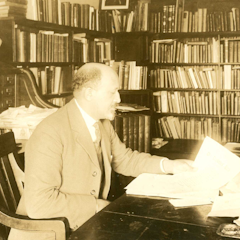
Articles on W.E.B. Du Bois
Displaying all articles

When people hear the term ‘liberal arts,’ it may sound like a phrase with political overtones. A scholar of literature explains why that’s wrong and takes a closer look at its origin and meaning.

As the 20th century’s preeminent scholar-activist on race, W.E.B. Du Bois would not be surprised by modern-day attempts at whitewashing American history. He saw them in 1930s and 1940s.

The United States came in 41st worldwide on the UN’s 2022 sustainable development index, down nine spots from last year. A political historian explains the country’s dismal scores.

Discussions of racism in Britain centre around the experiences and traumas of Black people, but rarely on the perpetrators.

Many Black audiences are justifiably weary of works about their community told from white perspectives. But authorship isn’t always black and white.

A scholar of African American studies explores how the former secretary of state, who died at 84, dealt with what WEB DuBois described as the ‘double-consciousness’ of being Black and American.

For over a century, Black activists have used punctuation marks to subtly challenge official accounts of events.

At the turn of the 20th century, with few children’s books featuring Black characters, one young editor implored his peers to ‘Let us make the world know that we are living.’

In a rare series of interviews, the late Ghanaian leader spoke of how the country’s slave trade was revisited as a vehicle for economic development.

A sense – or fear – of victimhood pervades contemporary white supremacy from the extreme to the mainstream.

As editor of the magazine for 24 years, Du Bois featured articles about biology, evolution, archaeology in Africa and more to refute the rampant scientific racism of the early 20th century.

Former presidents Obasanjo and Mbeki have arguably made the most important contribution to Africa in the 21st Century by promoting peace, democracy, regional integration and pan-Africanism.

Suffering a pandemic and the aftermath of a war that killed 50 million, the world in 1920 faced a turning point as it negotiated a new political order. As today, the key issue was racial inequality.

Publication was justified of information from the FBI that Martin Luther King Jr. witnessed and celebrated a woman’s rape, writes a historian, who warns the FBI had long wanted to destroy King.

The first NAACP meeting was held in Canada but there is no mention of Black Canadians in the books. This historical absence is a symbol of the invisibility of anti-Black racism in Canada.

The country’s ‘Black Mecca’ is hosting the Super Bowl. With the NFL’s national anthem controversy still lingering, this creates an undeniable paradox.

Where to draw the line between loyalty to the nation and the struggle for equal rights? A scholar sees parallels between NFL protests and a call for African-Americans to ‘close ranks’ during WWI.

The longing for lighter skin remains a taboo topic in African-American communities.

Thousands marched in silence against racial violence after a riot left hundreds of blacks dead and thousands homeless. The demands of black people in 2017 remain the same as they did in 1917.

Robert Sobukwe developed the philosophy of African nationalism to even higher intellectual heights. The lesson for humanity was his ideological stand that there is only one race - the human race.
